|
Content Standards: HS.UH.CO.3
Analyze the role of the United States in global compromises and conflicts between 1890-1945 in the Spanish American War, World War I, the Interwar years and World War II. Learning Target: I can analyze the military strategies the United States & its allies pursued during World War II. Critical Vocabulary: Dow-Jones Industrial Average, Speculation, Buying on Margin, Black Tuesday, Great Depression, Rugged Individualism, “Hoovervilles," Bread Lines, Soup Kitchens, Bonus Army, Dust Bowl, Reconstruction Finance Corporation New Deal, Emergency Banking Act, Fireside Chat, Federal Deposit Insurance Corporation, Securities & Exchange Commission, Agricultural Adjustment Act, Civilian Conservation Corps, Court-Packing Bill, National Labor Relations Act, Fair Labor Standards Act, Social Security Act, Works Progress Administration, New Deal Coalition, Deficit Spending, Totalitarianism, Fascism, Nazism, Allied Powers, Axis Powers, Isolationism, America First Committee, Neutrality Acts, Internationalism, “Quarantine” Speech, Cash & Carry Policy, “Arsenal of Democracy," Lend-Lease Act, Atlantic Charter, Pearl Harbor, Battle of the Atlantic, North Africa Campaign, Battle of Stalingrad, Italian Campaign, Normandy Invasion, Battle of the Bulge, Bataan Death March, Doolittle’s Raid, Battle of the Coral Sea, Battle of Midway, Island-Hopping, Battle of Okinawa, Hiroshima, Office of War Information, Selective Training & Service Act, “Double V” Campaign, War Production Board, Zoot Suit Riots, Office of Price Administration, Executive Order 9066 Today's Agenda:
0 Comments
Content Standards: HS.UH.CO.3
Analyze the role of the United States in global compromises and conflicts between 1890-1945 in the Spanish American War, World War I, the Interwar years and World War II. Learning Target: I can summarize the origins of World War II, & I can assess the American response to the growing international crisis from 1935-1941. Critical Vocabulary: Dow-Jones Industrial Average, Speculation, Buying on Margin, Black Tuesday, Great Depression, Rugged Individualism, “Hoovervilles," Bread Lines, Soup Kitchens, Bonus Army, Dust Bowl, Reconstruction Finance Corporation New Deal, Emergency Banking Act, Fireside Chat, Federal Deposit Insurance Corporation, Securities & Exchange Commission, Agricultural Adjustment Act, Civilian Conservation Corps, Court-Packing Bill, National Labor Relations Act, Fair Labor Standards Act, Social Security Act, Works Progress Administration, New Deal Coalition, Deficit Spending, Totalitarianism, Fascism, Nazism, Allied Powers, Axis Powers, Isolationism, America First Committee, Neutrality Acts, Internationalism, “Quarantine” Speech, Cash & Carry Policy, “Arsenal of Democracy," Lend-Lease Act, Atlantic Charter, Pearl Harbor, Battle of the Atlantic, North Africa Campaign, Battle of Stalingrad, Italian Campaign, Normandy Invasion, Battle of the Bulge, Bataan Death March, Doolittle’s Raid, Battle of the Coral Sea, Battle of Midway, Island-Hopping, Battle of Okinawa, Hiroshima, Office of War Information, Selective Training & Service Act, “Double V” Campaign, War Production Board, Zoot Suit Riots, Office of Price Administration, Executive Order 9066 Today's Agenda:
Content Standards: HS.UH.CO.3
Analyze the role of the United States in global compromises and conflicts between 1890-1945 in the Spanish American War, World War I, the Interwar years and World War II. Learning Target: I can summarize the origins of World War II, & I can assess the American response to the growing international crisis from 1935-1941. Critical Vocabulary: Dow-Jones Industrial Average, Speculation, Buying on Margin, Black Tuesday, Great Depression, Rugged Individualism, “Hoovervilles," Bread Lines, Soup Kitchens, Bonus Army, Dust Bowl, Reconstruction Finance Corporation New Deal, Emergency Banking Act, Fireside Chat, Federal Deposit Insurance Corporation, Securities & Exchange Commission, Agricultural Adjustment Act, Civilian Conservation Corps, Court-Packing Bill, National Labor Relations Act, Fair Labor Standards Act, Social Security Act, Works Progress Administration, New Deal Coalition, Deficit Spending, Totalitarianism, Fascism, Nazism, Allied Powers, Axis Powers, Isolationism, America First Committee, Neutrality Acts, Internationalism, “Quarantine” Speech, Cash & Carry Policy, “Arsenal of Democracy," Lend-Lease Act, Atlantic Charter, Pearl Harbor, Battle of the Atlantic, North Africa Campaign, Battle of Stalingrad, Italian Campaign, Normandy Invasion, Battle of the Bulge, Bataan Death March, Doolittle’s Raid, Battle of the Coral Sea, Battle of Midway, Island-Hopping, Battle of Okinawa, Hiroshima, Office of War Information, Selective Training & Service Act, “Double V” Campaign, War Production Board, Zoot Suit Riots, Office of Price Administration, Executive Order 9066 Today's Agenda:
Content Standards: HS.UH.CH.2
Analyze changes to economic policies, the size of government and the power of government between 1890-1945. Learning Target: I can describe the government's response to the Great Depression, & I can evaluate its effects on the nation. Critical Vocabulary: Dow-Jones Industrial Average, Speculation, Buying on Margin, Black Tuesday, Great Depression, Rugged Individualism, “Hoovervilles," Bread Lines, Soup Kitchens, Bonus Army, Dust Bowl, Reconstruction Finance Corporation New Deal, Emergency Banking Act, Fireside Chat, Federal Deposit Insurance Corporation, Securities & Exchange Commission, Agricultural Adjustment Act, Civilian Conservation Corps, Court-Packing Bill, National Labor Relations Act, Fair Labor Standards Act, Social Security Act, Works Progress Administration, New Deal Coalition, Deficit Spending, Totalitarianism, Fascism, Nazism, Allied Powers, Axis Powers, Isolationism, America First Committee, Neutrality Acts, Internationalism, “Quarantine” Speech, Cash & Carry Policy, “Arsenal of Democracy," Lend-Lease Act, Atlantic Charter, Pearl Harbor, Battle of the Atlantic, North Africa Campaign, Battle of Stalingrad, Italian Campaign, Normandy Invasion, Battle of the Bulge, Bataan Death March, Doolittle’s Raid, Battle of the Coral Sea, Battle of Midway, Island-Hopping, Battle of Okinawa, Hiroshima, Office of War Information, Selective Training & Service Act, “Double V” Campaign, War Production Board, Zoot Suit Riots, Office of Price Administration, Executive Order 9066 Today's Agenda:
Content Standards: HS.UH.CH.2
Analyze changes to economic policies, the size of government and the power of government between 1890-1945. Learning Target: I can describe the government's response to the Great Depression, & I can evaluate its effects on the nation. Critical Vocabulary: Dow-Jones Industrial Average, Speculation, Buying on Margin, Black Tuesday, Great Depression, Rugged Individualism, “Hoovervilles," Bread Lines, Soup Kitchens, Bonus Army, Dust Bowl, Reconstruction Finance Corporation New Deal, Emergency Banking Act, Fireside Chat, Federal Deposit Insurance Corporation, Securities & Exchange Commission, Agricultural Adjustment Act, Civilian Conservation Corps, Court-Packing Bill, National Labor Relations Act, Fair Labor Standards Act, Social Security Act, Works Progress Administration, New Deal Coalition, Deficit Spending, Totalitarianism, Fascism, Nazism, Allied Powers, Axis Powers, Isolationism, America First Committee, Neutrality Acts, Internationalism, “Quarantine” Speech, Cash & Carry Policy, “Arsenal of Democracy," Lend-Lease Act, Atlantic Charter, Pearl Harbor, Battle of the Atlantic, North Africa Campaign, Battle of Stalingrad, Italian Campaign, Normandy Invasion, Battle of the Bulge, Bataan Death March, Doolittle’s Raid, Battle of the Coral Sea, Battle of Midway, Island-Hopping, Battle of Okinawa, Hiroshima, Office of War Information, Selective Training & Service Act, “Double V” Campaign, War Production Board, Zoot Suit Riots, Office of Price Administration, Executive Order 9066 Today's Agenda:
Content Standards: HS.UH.CH.2
Analyze changes to economic policies, the size of government and the power of government between 1890-1945. Learning Target: I can describe the government's response to the Great Depression, & I can evaluate its effects on the nation. Critical Vocabulary: Dow-Jones Industrial Average, Speculation, Buying on Margin, Black Tuesday, Great Depression, Rugged Individualism, “Hoovervilles," Bread Lines, Soup Kitchens, Bonus Army, Dust Bowl, Reconstruction Finance Corporation New Deal, Emergency Banking Act, Fireside Chat, Federal Deposit Insurance Corporation, Securities & Exchange Commission, Agricultural Adjustment Act, Civilian Conservation Corps, Court-Packing Bill, National Labor Relations Act, Fair Labor Standards Act, Social Security Act, Works Progress Administration, New Deal Coalition, Deficit Spending, Totalitarianism, Fascism, Nazism, Allied Powers, Axis Powers, Isolationism, America First Committee, Neutrality Acts, Internationalism, “Quarantine” Speech, Cash & Carry Policy, “Arsenal of Democracy," Lend-Lease Act, Atlantic Charter, Pearl Harbor, Battle of the Atlantic, North Africa Campaign, Battle of Stalingrad, Italian Campaign, Normandy Invasion, Battle of the Bulge, Bataan Death March, Doolittle’s Raid, Battle of the Coral Sea, Battle of Midway, Island-Hopping, Battle of Okinawa, Hiroshima, Office of War Information, Selective Training & Service Act, “Double V” Campaign, War Production Board, Zoot Suit Riots, Office of Price Administration, Executive Order 9066 Today's Agenda:
Content Standards: HS.UH.CE.3
Explain the political, social and economic causes and effects of economic boom and bust cycles between 1877-1945. Learning Target: I can explain the causes of the Great Depression, & I can describe its effects on ordinary Americans. Critical Vocabulary: Dow-Jones Industrial Average, Speculation, Buying on Margin, Black Tuesday, Great Depression, Rugged Individualism, “Hoovervilles," Bread Lines, Soup Kitchens, Bonus Army, Dust Bowl, Reconstruction Finance Corporation New Deal, Emergency Banking Act, Fireside Chat, Federal Deposit Insurance Corporation, Securities & Exchange Commission, Agricultural Adjustment Act, Civilian Conservation Corps, Court-Packing Bill, National Labor Relations Act, Fair Labor Standards Act, Social Security Act, Works Progress Administration, New Deal Coalition, Deficit Spending, Totalitarianism, Fascism, Nazism, Allied Powers, Axis Powers, Isolationism, America First Committee, Neutrality Acts, Internationalism, “Quarantine” Speech, Cash & Carry Policy, “Arsenal of Democracy," Lend-Lease Act, Atlantic Charter, Pearl Harbor, Battle of the Atlantic, North Africa Campaign, Battle of Stalingrad, Italian Campaign, Normandy Invasion, Battle of the Bulge, Bataan Death March, Doolittle’s Raid, Battle of the Coral Sea, Battle of Midway, Island-Hopping, Battle of Okinawa, Hiroshima, Office of War Information, Selective Training & Service Act, “Double V” Campaign, War Production Board, Zoot Suit Riots, Office of Price Administration, Executive Order 9066 Today's Agenda:
Content Standards: HS.UH.CE.3
Explain the political, social and economic causes and effects of economic boom and bust cycles between 1877-1945. Learning Target: I can explain the causes of the Great Depression, & I can describe its effects on ordinary Americans. Critical Vocabulary: Dow-Jones Industrial Average, Speculation, Buying on Margin, Black Tuesday, Great Depression, Rugged Individualism, “Hoovervilles," Bread Lines, Soup Kitchens, Bonus Army, Dust Bowl, Reconstruction Finance Corporation New Deal, Emergency Banking Act, Fireside Chat, Federal Deposit Insurance Corporation, Securities & Exchange Commission, Agricultural Adjustment Act, Civilian Conservation Corps, Court-Packing Bill, National Labor Relations Act, Fair Labor Standards Act, Social Security Act, Works Progress Administration, New Deal Coalition, Deficit Spending, Totalitarianism, Fascism, Nazism, Allied Powers, Axis Powers, Isolationism, America First Committee, Neutrality Acts, Internationalism, “Quarantine” Speech, Cash & Carry Policy, “Arsenal of Democracy," Lend-Lease Act, Atlantic Charter, Pearl Harbor, Battle of the Atlantic, North Africa Campaign, Battle of Stalingrad, Italian Campaign, Normandy Invasion, Battle of the Bulge, Bataan Death March, Doolittle’s Raid, Battle of the Coral Sea, Battle of Midway, Island-Hopping, Battle of Okinawa, Hiroshima, Office of War Information, Selective Training & Service Act, “Double V” Campaign, War Production Board, Zoot Suit Riots, Office of Price Administration, Executive Order 9066 Today's Agenda:
Content Standards: HS.UH.CE.3
Explain the political, social and economic causes and effects of economic boom and bust cycles between 1877-1945. Learning Target: I can explain the causes of the Great Depression, & I can describe its effects on ordinary Americans. Critical Vocabulary: Dow-Jones Industrial Average, Speculation, Buying on Margin, Black Tuesday, Great Depression, Rugged Individualism, “Hoovervilles," Bread Lines, Soup Kitchens, Bonus Army, Dust Bowl, Reconstruction Finance Corporation New Deal, Emergency Banking Act, Fireside Chat, Federal Deposit Insurance Corporation, Securities & Exchange Commission, Agricultural Adjustment Act, Civilian Conservation Corps, Court-Packing Bill, National Labor Relations Act, Fair Labor Standards Act, Social Security Act, Works Progress Administration, New Deal Coalition, Deficit Spending, Totalitarianism, Fascism, Nazism, Allied Powers, Axis Powers, Isolationism, America First Committee, Neutrality Acts, Internationalism, “Quarantine” Speech, Cash & Carry Policy, “Arsenal of Democracy," Lend-Lease Act, Atlantic Charter, Pearl Harbor, Battle of the Atlantic, North Africa Campaign, Battle of Stalingrad, Italian Campaign, Normandy Invasion, Battle of the Bulge, Bataan Death March, Doolittle’s Raid, Battle of the Coral Sea, Battle of Midway, Island-Hopping, Battle of Okinawa, Hiroshima, Office of War Information, Selective Training & Service Act, “Double V” Campaign, War Production Board, Zoot Suit Riots, Office of Price Administration, Executive Order 9066 Today's Agenda:
|
A life is not important except in the impact it has on other lives.
-Jackie Robinson AnnouncementsMarch 6: Bullitt Day
March 30-April 3: Spring Break ResourcesArchives
March 2020
|
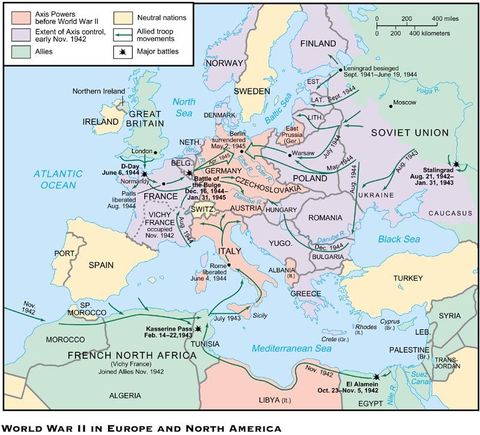

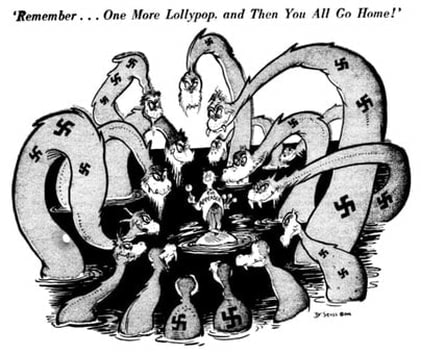
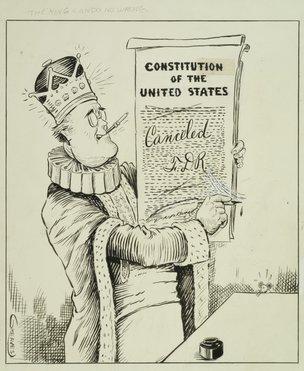
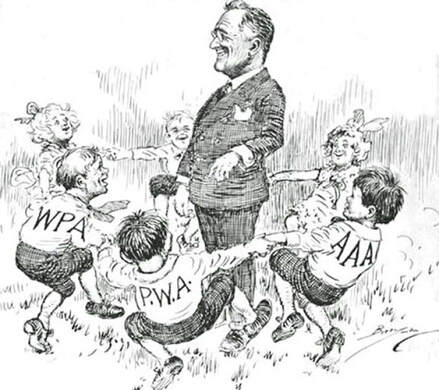
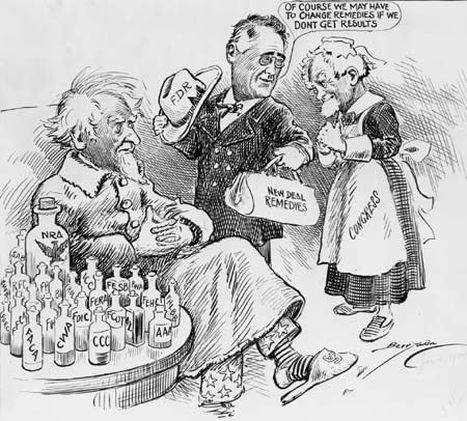
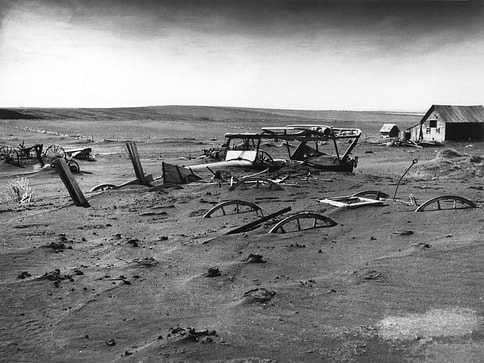
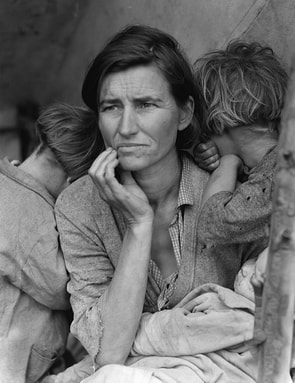
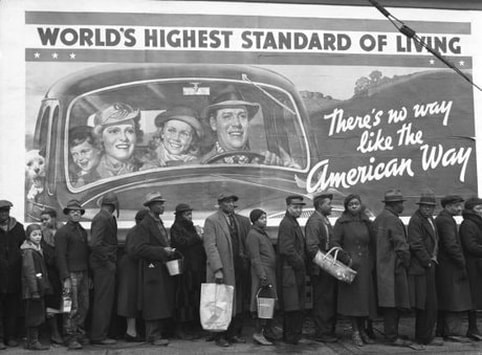
 RSS Feed
RSS Feed
